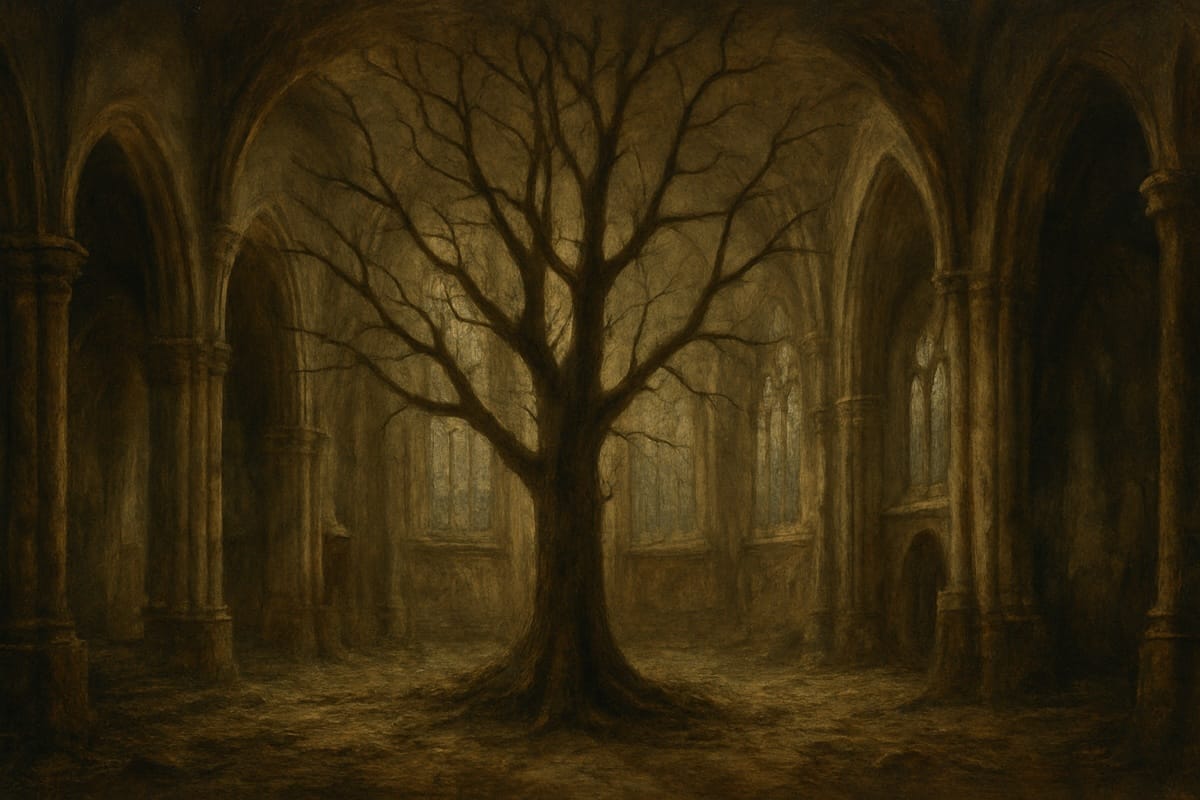A Reflection on Religion and Humanity
There is something deeply, stubbornly human about the need to believe. Not necessarily in truth or proof, but in comfort. In structure. In the hope that someone, somewhere, sees us, and cares. Religion, in that sense, is less about God and more about us. About our fear of the void, and the quiet refusal to vanish into it without a story to hold.
I remember asking questions when I was little. Why does God need us to pray? Why do bad things happen to good people? Why does He send some of us to hell for being born in the wrong house? Nobody liked those questions. They make adults uncomfortable. So I stopped asking, but I never stopped wondering. And eventually, wondering turned into walking away.
Belief is easy when it's soaked into your skin before you learn how to speak. You are not born a Christian, or a Muslim, or a Jew. You are born soft and small, and someone fills your ears with soft songs or simple prayers before you even understand the meaning of breath. Children don’t question the fairy tales until the fairies begin to rot. And even then, some hold on, because letting go feels like betrayal.
Let’s not sugarcoat it. If you were born in Alabama, chances are your God wears a white robe and a carpenter's face. If you were born in Punjab, your God wears many arms or none at all. We do not choose our faiths. We inherit them. Which makes the idea of the "true religion" both absurd and dangerous. We’re not chosen. We’re conditioned. That doesn’t mean your faith is invalid. It just means it’s not unique. It's a point of view.
But does questioning belief strip life of meaning? No. That’s just fear talking. The thought that without a deity watching us, morality collapses. But kindness, empathy, and love are not divine gifts. They’re human muscles. We build them ourselves. We stretch them through pain, through joy, through the simple desire to be better.
When I say I don’t believe, I’m not trying to offend anyone. It’s not rebellion. It’s not rage. It’s acceptance of what makes sense to me. I don’t think someone in the sky is keeping score. I don’t believe a gay child deserves damnation. I don’t think suffering is a holy test. I just can’t pretend to believe in a version of goodness that feels so conditional.
Faith has been many things: a blanket, a sword, a ladder, a chain. The problem is not belief, but what we build around it. The shame machines. The thrones. The barbed-wire rules enforced in the name of love. Organised religion often becomes a system, and systems need control. And control rarely stays kind.
Still, spirituality, that quiet gasp you feel in front of the ocean, or when a song wrecks you, that’s something else. I’ve felt it watching someone I love fall asleep on my shoulder. I’ve felt it standing in silence with a dog who understood more than most people. That feeling is real. Call it the soul, call it wonder. Just don’t tell me it needs a label.
Death is the great motivator. The idea that it all just stops is hard. So we build afterlives. We imagine gates and gardens, punishments and rewards. As if that softens the blow. But for me, the fact that life ends makes it more urgent. It makes the morning coffee taste like a miracle. It makes forgiveness feel holy. I don’t need eternity. I just need this, and the people I love to know they mattered.
I don’t mock believers. If your faith helps you be kinder, gentler, warmer, then it is doing something beautiful. But do not confuse comfort with truth. And do not use belief to justify cruelty. If your God demands that you hurt others in His name, then maybe your God isn’t the good guy.
So let’s be kind. Let’s be curious. Let’s hold each other tightly, because the lights don’t stay on forever. The cathedral might be hollow. But we’re the ones who fill it.

